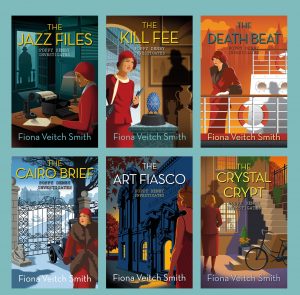I was contacted the other day by a high school student who was doing a research project on playwrights. She asked if I would answer a few questions. Well after resisting the urge to ask her why she had asked me as I wasn’t a ‘real’ playwright like Caryl Churchill and David Hare (and because I was impressed at how polite she had been) I answered her questions. The answers actually surprised me. ‘So that’s why I do what I do,’ I thought. Here they are:
1. Why did you begin to write? When you set about writing those first plays, what was driving you then to take up the pen in the first place?
I always wrote plays at primary school to create role play games for my friends. I remember my first ‘success’ was when I was 16 and I was the director of my school house play. The published play we had chosen wasn’t working well, so a week before the play festival I wrote an original play called ‘Sophie’s Birthday’. It came second in the festival. It was then I realised I had some talent for it.
2. When you’re writing, what does an ideal day look like to you?
My writing days have to fit around the rest of my life. I am a working mother and lecture at university a couple of days a week. I also run my own book publishing company. I probably write 2 – 3 days a week and during holidays – but rarely if ever full days. I snatch time when I can, a couple of hours here and there. When I’m working on a project to deadline I tend to wake an hour or two before the family and get a good swathe of writing done. I also write while I’m sitting waiting for my daughter at gymnastics or while I’ve set my students an exercise to do in class. Is this my ideal writing day? Definitely not, but it’s been a long time since I’ve had the luxury of actually being able to write when I want to and as my daughter is only 8, that won’t change any time soon.
3. When you’re writing, does your mind fit itself to the space of the stage, or are you thinking only about the characters and their lives?
I definitely write to the space. I visualise my characters acting out my words and directions. Of course I think about the characters and their lives too, but that comes more in the planning stage as I’m outlinling the plot and trying to get to the heart of the story I want to tell. When I actually write the script I know who my characters are and what they want and I then write them into the space. I consider the comings and goings, who is on stage when, the practicalities of the space etc. Sometimes your script will have to change when it goes into the actual performance space. If you were writing for instance with a pros arch in mind but the actual space turns out to be in the round, changes may have to be made in the script.
4. Are there certain writers who have been important to you?
Caryl Churchill, Arthur Miller, David Mamet, Peter Shaffer, David Hare, Joe Penhall.
5. Whats goes into writing a play?
Everything!
6. What really inspires you to write? Where do you get ideas from?
I write across all media. I get story ideas not play ideas. I catch a snippet of conversation, am struck by an image, have a dream, see a scenario played out on the news. I usually ask myself: what if? I started out as a journalist so fleshing out the story through the Who? What? Where? When? Why? method always helps. I usually start with a spark of one of the Ws. I’m struck by a person or a place or a situation or a metaphorical question. My play ‘Pig Stew’ for instance came from me considering the notion that an in-fighting family is partaking in emotional canibalism. ‘The Idol of Sarajevo’ came from a journalistic interview I did in Bosnia with three generations of women. The article never got printed but their story stuck with me. The core of the story is the need for forgiveness between family members and entire national groups. The lack of forgiveness and the desire for revenge was essentially what started the war in Bosnia. I wanted to show how a lack of forgiveness between individuals can escalate horribly unless dealt with. I suppose it resonated with me because of a feud on my mother’s side of the family that was causing a small scale ‘war’. ‘Marathon’ came from an article I wrote for Sports Illustrated about the Olympics. In my research I came across the female marathon runner Stamata Revithi. I wanted to tell her story as I felt it represented the struggles of all women in all generations. Something in her life resonated with mine – the battle to have a family and a career. But not all ideas turn into plays. I ask myself what the best medium would be for the story I want to tell. It might be an adult or children’s book, a film, a non-fiction article or even a poem or song. I am not first and foremost a playwright, I am simply a writer. Plays are just one outlet.
7. When in your career did you really feel as if you had made it as a playwrite?
I don’t think I’ve achieved that yet. Writing plays is easy, getting them performed is the difficult thing. If I reach the point of regularly having my work performed and being paid for it I would consider that I’ve ‘made it’.
